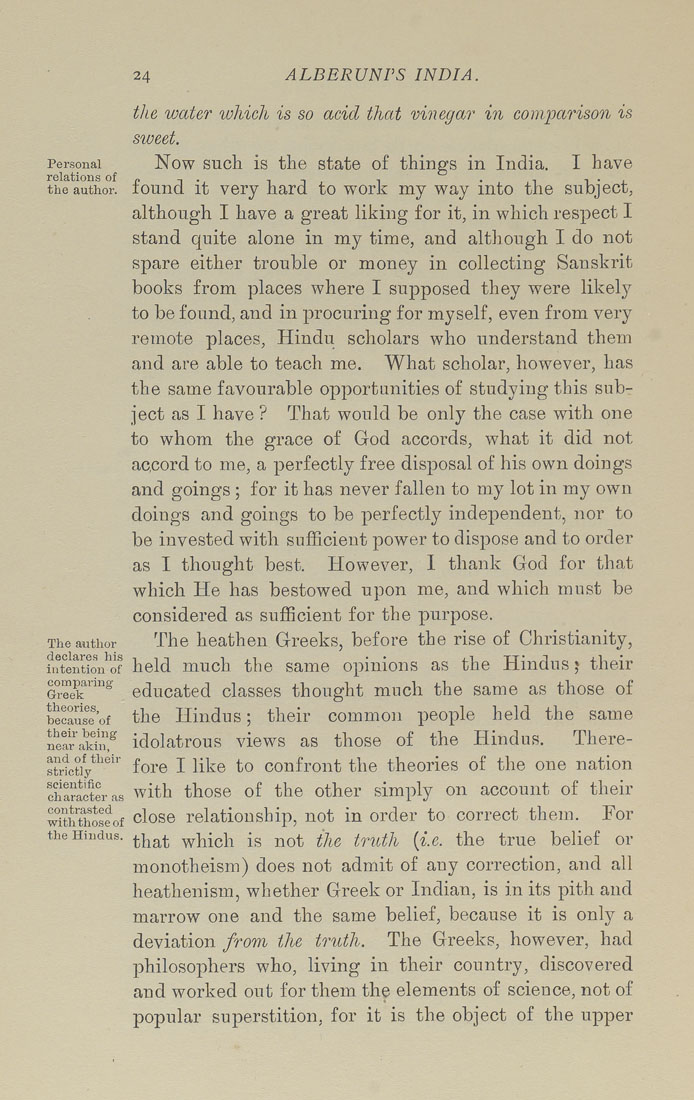Bīrūnī, Muḥammad ibn Aḥmad, Alberuni's India (v. 1)
(London : Kegan Paul, Trench, Trübner & Co., 1910.)
|
||
|
|
|
|
| Page 24 |

24 ALBERUNPS INDIA. the water tvhich is so acid that vinegar in comparison is sweet. Personal Now such is the statc of things in India. I have the author, found it vcry hard to work my way into the subject, although I have a great liking for it, in which respect I stand quite alone in my time, and although I do not spare either trouble or money in collecting Sanskrit books from places where I supposed they were likely to be found, and in procuring for myself, even from very remote places, Hindu scholars who understand them and are able to teach me. What scholar, however, has the same favourable opportunities of studying this sub¬ ject as I have ? That would be only the case with one to whom the grace of God accords, what it did not accord to me, a perfectly free disposal of his own doings and goings ; for it has never fallen to my lot in my own doings and goings to be perfectly independent, nor to be invested with sufficient power to dispose and to order as I thought best. However, 1 thank God for that which He has bestowed upon me, and which must be considered as sufficient for the purpose. The author The heathen Greeks, before the rise of Christianity, intention of held much the same opinions as the Hindus* their (^om^^armg g^^.jpg^^g(j classcs thought much the same as those of beoausf'of the Hindus; their common people held the same ncll^^odir idolatrous views as those of the Hindus. There- strictiy*^'*'" fore I like to confront the theories of the one nation chaSras with those of the other simply on account of their w°thThoseof close relationship, not in order to correct them. For the Hindus. |.^g^|. ^j^ip]^ ^g j^q^ ^"^g truth (Ic. the true belief or monotheism) does not admit of any correction, and all heathenism, whether Greek or Indian, is in its pith and marrow one and the same belief, because it is only a deviation from the truth. The Greeks, however, had philosophers who, living in their country, discovered and worked out for them the elements of science, not of popular superstition, for it is the object of the upper |
| Page 24 |







